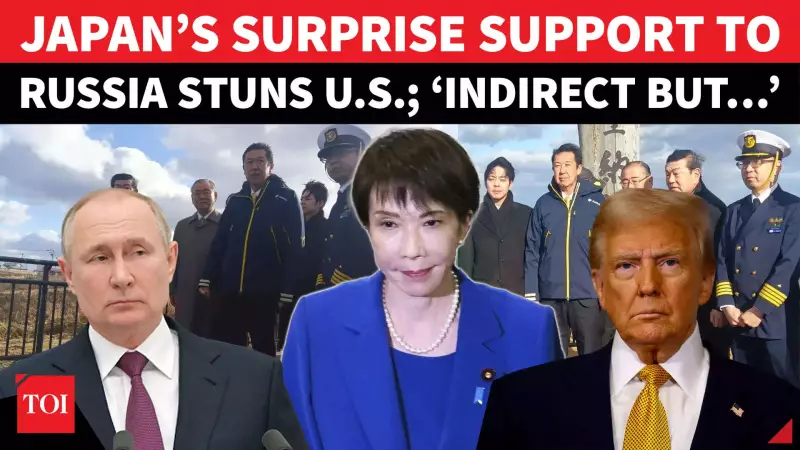
Japan Minister's Controversial Remark on Kuril Islands Sparks Diplomatic Firestorm
Japan's political landscape has been rocked by a major diplomatic blunder as Minister for Okinawa and Northern Territories Hitoshi Kikawada faces intense criticism for referring to the disputed Kuril Islands as "foreign land." The remark, made on November 10, 2025, has triggered widespread outrage in Tokyo and created significant embarrassment for Prime Minister Sanae Takaichi's government.
The controversial comment came during a time when Japan was engaged in delicate peace overtures with Moscow, making the timing particularly damaging. Kikawada's choice of words was immediately interpreted as acknowledging Russian control over the islands, which Japan has consistently claimed as its sovereign territory under the name "Northern Territories."
Government Backlash and Immediate Damage Control
The Japanese government moved swiftly to contain the diplomatic fallout. Chief Cabinet Secretary Minoru Kihara publicly rebuked Minister Kikawada and took the unusual step of reaffirming Japan's official position on the disputed islands. The strong response from the government's top spokesperson highlighted the seriousness of the diplomatic misstep.
Facing mounting pressure from political opponents and public criticism, Hitoshi Kikawada later issued a formal apology for his remarks. However, the damage appeared to have been done, with political analysts and foreign policy experts warning that the slip could have long-lasting consequences for Japan's diplomatic credibility.
Historical Context and Ongoing Tensions
The Kuril Islands dispute represents one of the longest-standing territorial conflicts in modern international relations. The islands, which Japan calls the Northern Territories, have been controlled by Russia since the end of World War II but are claimed by Tokyo under various historical agreements.
The timing of Kikawada's remark is particularly sensitive given the delicate nature of ongoing peace talks between Japan and Russia. Both nations have been engaged in careful diplomatic maneuvers to resolve the territorial dispute, which has prevented them from signing a formal peace treaty to officially end World War II hostilities.
Political critics and foreign policy experts have expressed concern that the minister's comment could rekindle long-standing tensions with Russia and undermine Japan's negotiating position. The incident has raised questions about the government's discipline in maintaining consistent messaging on sensitive diplomatic matters.
The controversy comes at a challenging time for Prime Minister Takaichi's administration, which has been attempting to balance Japan's strategic interests while maintaining its territorial claims. The incident underscores the delicate nature of diplomatic communications regarding territorial disputes and the potential consequences of off-hand remarks by government officials.





